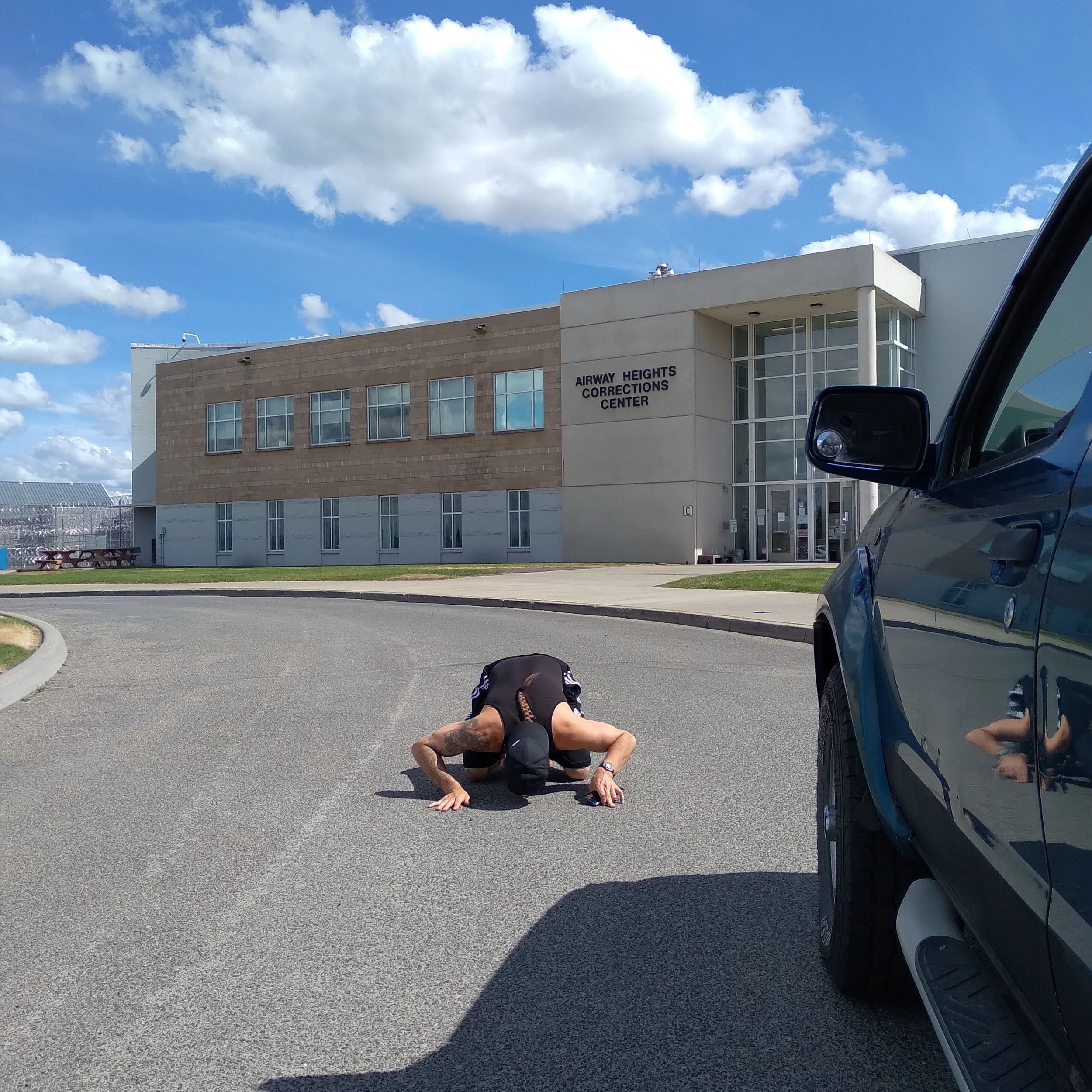Dennis Cramm’s Story
By Brooke Kaufman | Communications Specialist
Dennis with his wife, Heather
Photos courtesy of Dennis Cramm
The timing could not have been better. In 2014, when the Supreme Court handed down Miller v. Alabama, prohibiting mandatory life sentences for juvenile offenders, Dennis Cramm had just begun to walk the path of change.
“[When Miller came down], I was starting to reevaluate my life and the choices I made, understanding how my hate and [inability to accept] responsibility for my actions were causing me to go down an irrational path that didn’t jive with reality. I started to step away from the game, and when [Miller] came out, that was the final thing I needed. I stepped away for good; I dropped out. From that point on, I did everything I could to improve myself.”
Dennis was convicted at the age of 17. He served 21 years and seven days of a 60-year sentence before being released from prison on June 8, 2021. The Miller decision, which Dennis discovered after his dad mailed him a printout of the bill, produced a “major shift at the time.” Dennis’ sentence was effectively reduced to the period up until his hearing, which meant he received priority for education. He “dove” into programming and began facilitating educational and self-help classes that taught people steps for achieving personal growth.
“I really pushed myself. At one point, I took 28 college credits in one quarter. I was trying to [reach the place] where I would start to feel the stress, anxiety, and mental fatigue so that I could understand what [those feelings] were like [while I was still] in a controlled environment. [I looked for] signs that I was overextending myself so that I could figure out how to manage that better and back my schedule down to a manageable level so I could be ready for release.”
Dennis “took every college class available” inside — both as a student and as a teacher’s assistant — eventually earning his associate degree in business administration. As he prepared for the hearing, Dennis heard from a friend that the Seattle Clemency Project was taking on juvenile board cases and matching petitioners with volunteer attorneys. Dennis wrote a letter to Professor Steve Herbert asking to join his Juvenile Parole Project at the University of Washington, which pairs students and volunteer attorneys with petitioners going before the Washington State Indeterminate Sentence Review Board (ISRB). Although his timeline for seeing the board made Dennis ineligible for the class, all hope was not lost. With the help of John Zulauf, then-legal director at SCP, Professor Herbert matched Dennis with Caitlin Hoberlin, Mary Gaston, and Roxanne Degens of Perkins Coie — a pairing Dennis says made all the difference.
“My biggest thing was having lawyers there because when they’re there, it keeps the ISRB more honest.”
With the help of his attorneys and SCP’s Reentry Program Director Anthony Powers, Dennis created an extensive release plan that accounted for all the “different moving parts and pieces.” Anthony, a former ISRB petitioner and SCP client himself, also wrote a letter to the board on Dennis’ behalf. In the weeks following his release, Dennis reached out to friends from inside and those who had already been released, including Anthony, for support in navigating the transition back to the community.
“[During the hearing], sitting there and looking back at all that I had accomplished, it was great. I was so proud of [myself]. I broke everything [in the release plan] down to the first day out, like super detailed, and for the most part, I stuck with it. I was fortunate that I had a lot of support. My mom, dad, and aunt gave me [financial support] and a vehicle. An old friend I [spent time inside] with, who was already out, dropped everything he was doing for a week, helped me get my driver’s license, and drove me around. I had a lot of resources, and that’s the key to [having a] successful release — that support network of people you can rely on. Without it, [the release process] would have been very difficult.”
Even with a strong support network, acclimating to life in the community after spending 21 years in prison was no easy task. Dennis credits the time and effort he put into his release plan with preparing him for the difficulties of the transition.
“The thing about a release plan, and any plan you make, is that a plan is always perfect until the very first thing you try to do, and then it all changes. But the effort and the time that you put forth — going through the release plan, reviewing your options, understanding all the different moving parts and pieces, and having researched it so much — makes it a lot easier to dynamically pivot when something doesn’t go [the way you expect it to]. You can say, ‘Okay, that didn’t work. I’ve got this [other option] right here. I’m going to do that instead.’ That was the most important part, just having a total understanding of the situation. And you can’t get that [result] unless you put the work in.”
Dennis now lives in Spokane with his wife, Heather. He is a superintendent at Sterling Concrete in Post Falls, ID, and is currently in his senior year of online school at Southern New Hampshire University. The work ethic he applied to educational classes and programming while inside has not slowed. On average, Dennis works 60+ hours a week, commuting from Spokane to Post Falls while studying for his bachelor’s degree full-time.
Through determined optimism, he has taken control of his life, leaving behind the victim mindset that drove his early years of incarceration.
“The most important thing for my success was my view on life. At one point, I was very negative. I always saw the negative in people and situations and focused on it. I had a victim mindset. I went into prison [when] I was still a kid, and although I had choices and made my own decisions, at that age, it doesn’t really work like that [because] you’re so impressionable. I felt that I was taken advantage of, if you will, by my disaffected belief system, because of my crime. I was looking for somewhere to fit in, somewhere to belong, and I was still allowing other people to make decisions for me. That’s why I went down a negative path. It wasn’t until I grew up and started making decisions for myself that I went down a different path [and was able to achieve a growth mindset].”
For Dennis, this growth mindset was made possible through education. He believes that a college degree and marketable skills can change not only a person’s circumstances but how they perceive themselves and their value. Accomplishing goals through education gives people a new standard “to live up to” and a sense of purpose beyond the reason they went to prison. Before Miller, before hope for release was a possibility and not a dream, Dennis saw education as the path forward — out of irrationality and into the light of a new reality.
“The biggest [advice I have] is to walk your own path. You know what I mean? It’s so difficult to do, but again, education helped me with that.
Dennis on the day of his release
Education gave me confidence in who I was and what I could accomplish. It allowed me to start making my own choices, to understand that nobody is going to fight as hard for me as I am, and to not rely on other people to do what I need to do [for myself].”
Grand realizations such as this come in their own time. Everyone is capable of change; it's only a matter of when.
“It’s not something you can tell people. They have to experience this for themselves.”



